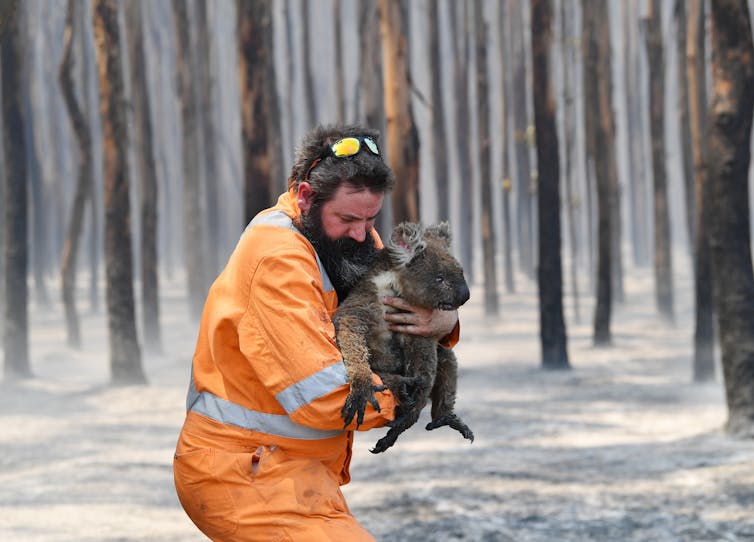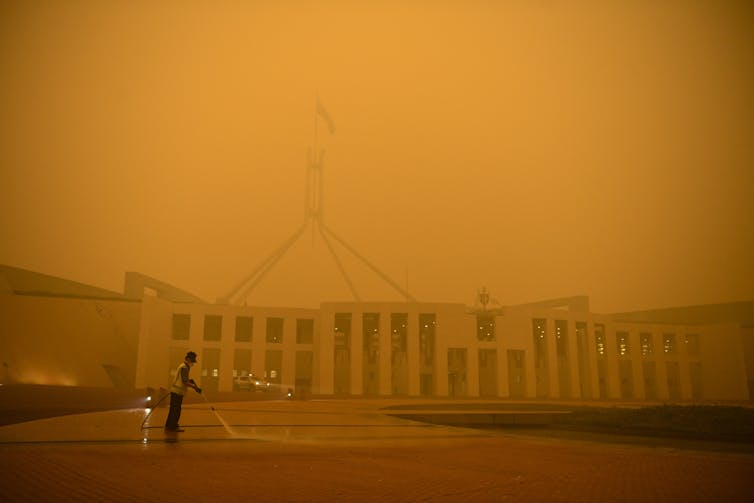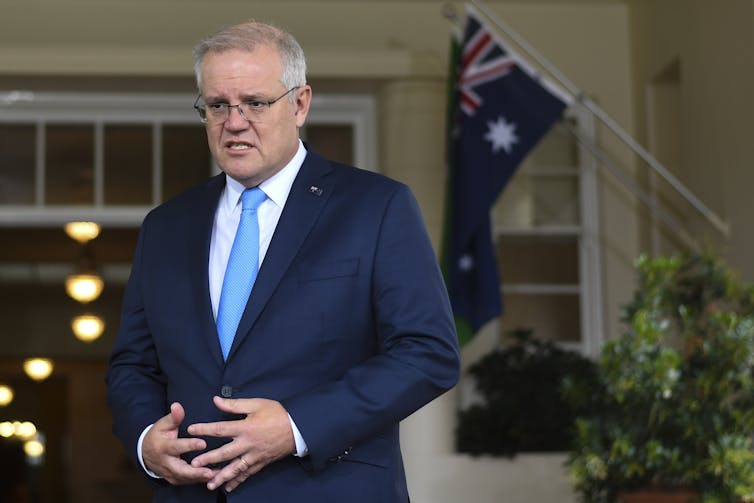The bushfire royal commission has made a clarion call for change. Now we need politics to follow
- Written by David Bowman, Professor of Pyrogeography and Fire Science, University of Tasmania
The bushfire royal commission today handed down its long-awaited final report. At almost 1,000 pages, it will take us all some time to digest. But it marks the start of Australia’s national disaster adaptation journey after a horrendous summer.
The report clearly signals the urgent need to improve disaster management capacity in Australia. Closer examination of the report will determine if other recommendations are needed. But overall, this seems a realistic report that incorporates a diverse and complex body of evidence. And it arrives at recommendations likely to enjoy broad political, institutional and community support.
As the report states, the 2019-2020 bushfires were the catalyst for, but not the sole focus of, the inquiry. It also looked at floods, bushfires, earthquakes, storms, cyclones, storm surges, landslides and tsunamis.
The recommendations demonstrate the Royal Commission is serious about shifting the status quo when it comes to managing Australia’s natural disasters – events that will become more frequent and severe under climate change. What’s needed now is political will for change.
 Australia endured its own bushfire disaster just months ago.
David Mariuz/AAP
Australia endured its own bushfire disaster just months ago.
David Mariuz/AAP
A picture of devastation
The commission received evidence from more than 270 witnesses, almost 80,000 pages of tendered documents and more than 1,750 public submissions. It recaps the damage wrought, including:
more than 24 million hectares burnt nationally
33 human deaths (and perhaps many more due to smoke haze over much of eastern Australia)
more than 3,000 homes destroyed
thousands of locals and holidaymakers trapped
communities isolated without power, communications, and ready access to essential goods and services
estimated national financial impacts over A$10 billion
nearly three billion animals killed or displaced
many threatened species and other ecological communities extensively harmed.
The report noted every state and territory suffered fire to some extent, adding “on some days, extreme conditions drove a fire behaviour that was impossible to control”.
 Mallacoota residents and CFA firefighters were evacuated to Hastings on landing crafts to escape the bushfires.
AAP Image/David Crosling
Mallacoota residents and CFA firefighters were evacuated to Hastings on landing crafts to escape the bushfires.
AAP Image/David Crosling
A new role for national government
The scope of the commission’s recommendations is vast. For government, it would mean changes across land-use planning, infrastructure, emergency management, social policy, agriculture, education, physical and mental health, community development, energy and the environment.
Broad areas of recommended change include a clearer leadership role for the federal government and establishing a national natural disaster management agency. The report notes while state and territory governments have primary responsibility for emergency management, during the bushfire crisis the public “expected greater Australian Government action”.
Other recommendations include:
nationally consolidating aerial firefighting capacity
more capacity in local government
nationally consistent warnings including air pollution (especially bushfire smoke) forecasts
acknowledgement of the role of Indigenous fire managers in mitigating bushfire risks.
The commission says preparing for natural disasters “is not the sole domain of governments and agencies”. Individuals and communities must also ensure they’re prepared. As the commission notes:
While we heard that some individuals and communities were well prepared for the 2019-2020 bushfire season, this was not always the case. For other individuals and communities, although they did prepare, the intensity of the bushfires meant that no level of preparation would have been sufficient. For others, they were seemingly unprepared for what confronted them.
The inquiry said governments have a critical role to play here, by providing information on disaster risks through community education and engagement programs.
 Smoke haze shrouded Australia’s east coast.
AAP Image/Lukas Coch
Smoke haze shrouded Australia’s east coast.
AAP Image/Lukas Coch
The climate question
During last summer’s bushfire crisis, Prime Minister Scott Morrison was reluctant to draw links to climate change. And before the inquiry commenced, there was much doubt over whether it would adequately probe how climate change is contributing to natural disasters.
Significantly, the commission’s final report explicitly recognises climate change increases the risk and impact of natural disasters. It says global warming beyond the next 20 to 30 years “is largely dependent on the trajectory of greenhouse gas emissions”, but stops far short of calling for federal government action on emissions reduction.
The report says extreme weather “has already become more frequent and intense because of climate change; further global warming over the next 20 to 30 years is inevitable”. It goes on:
Globally, temperatures will continue to rise, and Australia will have more hot days and fewer cool days. Sea levels are also projected to continue to rise. Tropical cyclones are projected to decrease in number, but increase in intensity. Floods and bushfires are expected to become more frequent and more intense. Catastrophic fire conditions may render traditional bushfire prediction models and firefighting techniques less effective.
Among its recommendations, the report calls for improved national climate and weather intelligence to support governments to implement, assess and review their disaster management and climate adaptation strategies.
 Prime Minister Scott Morrison was reluctant to draw links to climate change during the Black Summer bushfires.
AAP Image/Lukas Coch
Prime Minister Scott Morrison was reluctant to draw links to climate change during the Black Summer bushfires.
AAP Image/Lukas Coch
Now’s the time to act
The commission acknowledged most of its recommendations identify what needs to be done, rather than how it should be done.
The commission also says while governments and others have backed the notion of improving natural disaster resilience, “support is one thing – action is another”. And the time to act, the report says, is now.
This is a key point. As noted by the report, more than 240 inquiries about natural disasters have been held in Australia to date. Many would have been time-consuming and expensive. And while many recommendations have been implemented and have led to significant improvements, the report said, “others have not”.
Read more: New polling shows 79% of Aussies care about climate change. So why doesn't the government listen?
So will this royal commission lead to substantive change? The inquiry suggests this will require that governments “commit to action and cooperate and hold each other to account”. Further, progress towards implementing the recommendations should be publicly monitored.
Fundamentally, political appetite will determine whether the royal commission’s recommendations ever become reality. There is much work to be done by governments and others to iron out the legal, administrative, social and practical complexities of changing the status quo. And the Morrison government has given next to no indication it’s willing to seriously tackle the problem of climate change.
Ultimately, these findings are small steps towards achieving natural disaster reliance. To paraphrase Winston Churchill, this report can be read not as the beginning of the end, but perhaps the end of the beginning of the long road to climate change adaptation.
Authors: David Bowman, Professor of Pyrogeography and Fire Science, University of Tasmania





